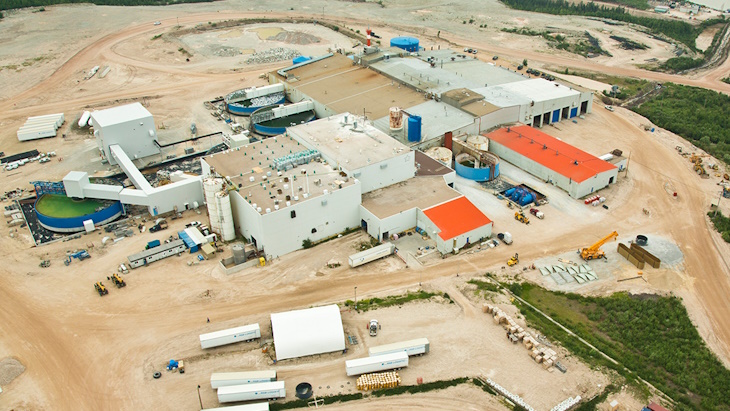CNSC renews licences for Cameco uranium operations
The renewed licences authorise the company to continue to operate the Key Lake, McArthur River and Rabbit Lake sites. Rabbit Lake's renewed licence is valid until October 2038, and those for Key Lake and McArthur River until October 2043.

Rabbit Lake operations are currently idled, but the mine is licensed until 2038 (Image: Cameco)
Cameco submitted its application for the licence renewals to the Canadian Nuclear Safety Commission (CNSC) last November. In making its decision, the regulator considered submissions from Cameco, CNSC staff, and over 30 intervenors. A two-day public hearing was held in June.
As part of each licence renewal, Cameco must provide the CNSC with periodic comprehensive updates on the conduct of its licensed activities. These must be provided every seven years for the Key Lake and McArthur River operations (so in 2030 and 2037) and at the mid-point of the licence period for Rabbit Lake, in 2030.
"After reviewing all submissions, the commission concluded that Cameco remains qualified to carry on the activities that the renewed licences will authorise," the regulator said. "It also concluded that Cameco will continue to make adequate provision for the protection of the environment and the health and safety of persons."
The Key Lake and McArthur River operations are operationally connected: uranium ore from the McArthur River mine is trucked 80 km by road to be processed at the Key Lake mill. The operations were idled in 2018 as part of Cameco's strategy of supply discipline, but the company began transitioning them from care-and-maintenance in early 2022. In September, Cameco said it expects the McArthur River/Key Lake operations to produce a total of 14 million pounds U3O8 (5385 tU) this year (on a 100% basis).
Rabbit Lake has been under care and maintenance since 2016. The CNSC said Cameco "has not indicated" to the regulator whether it plans to restart production at Rabbit Lake, but in the event of a return to operations, the company will be required to submit a commissioning report to the CNSC for regulatory acceptance. Before being idled it was the longest operating uranium facility in North America, producing more than 203 million pounds of uranium concentrates since it opened in 1975.
The sites are located in northern Saskatchewan on Treaty 10 territory (1906) and the Homeland of the Métis, and are within the traditional territories of the Denesųłiné, Cree, and Métis peoples.
- China Institute of Atomic Energy
- Nuclear Power Institute of China
- Southwestern Institute of Physics
- China Nuclear Power Operation Technology Corporation, Ltd.
- China Nuclear Power Engineering Co., Ltd.
- China Institute for Radiation Protection
- Beijing Research Institute of Uranium Geology (BRIUG)
- China Institute of Nuclear Industry Strategy (CINIS)
- China Nuclear Mining Science and Technology Corporation


